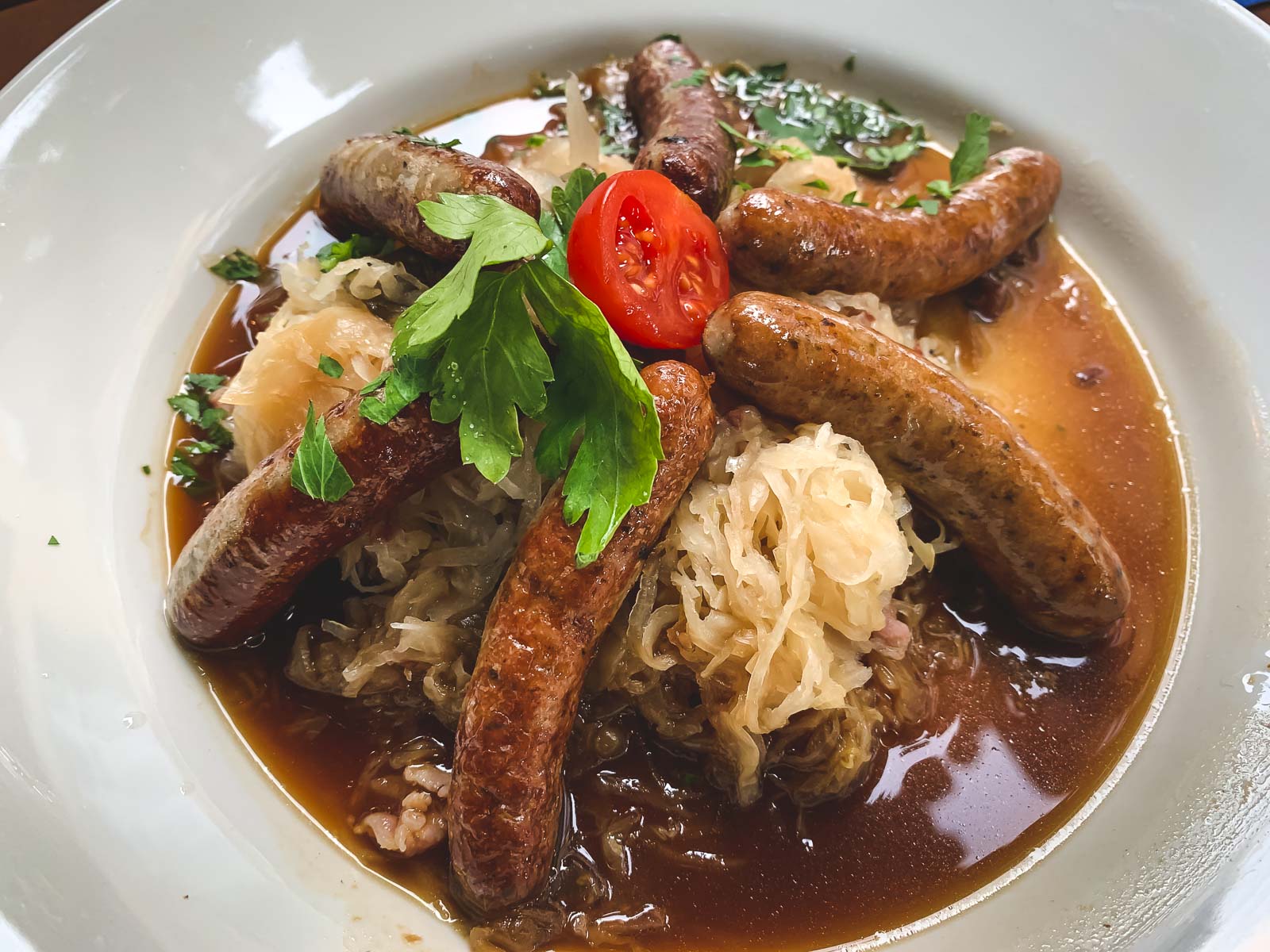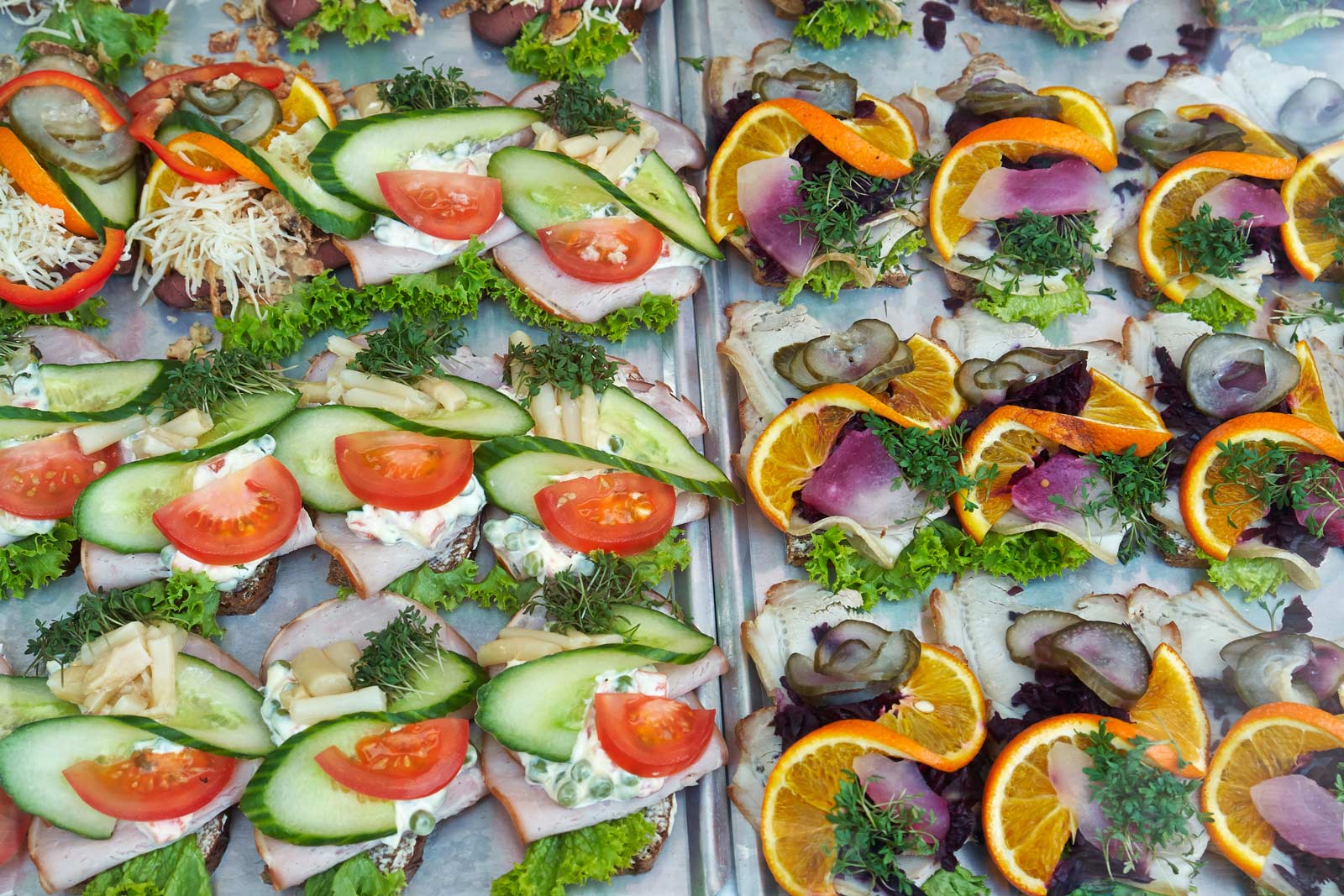Summary
While Israel has long been known for its tremendous history, meaning, and political turmoil, its food has recently exploded onto the American culinary scene. You may have noticed a huge uptick in the amount of Israeli restaurants popping up on every corner: hits like Mh Zh in Los Angeles’ Silver Lake, Sababa in Washington, D.C., Aviva in Atlanta, Zahav in Philly, and the list goes on.
Why is it becoming so popular? Well, much like the melting pot of American cuisine, Israeli food encompasses tastes, textures, and flavors from all over the world—North Africa, Mediterranean, Eastern European, and surrounding Middle Eastern influences have been brought back to Israel after the Jewish diaspora, making for a highlight reel of the world’s most delicious flavors.
So, while you explore the heritage sights, religious institutions, and Tel Aviv party scene during your visit, don’t forget to stop along the way to try some of Israel’s tastiest dishes. Need help going beyond hummus and pita? We’re here to guide. Here are eleven of the best foods to try on your next trip to the holy land.
Shakshuka
Shakshuka is the perfect vegetarian breakfast dish for people who like joy. It’s traditionally made with poached eggs in a tomato sauce with chili peppers, garlic, cumin, paprika, and cayenne pepper. Shakshuka is simple to make, healthy, and light (if you take it easy on the bucket of challah bread it’s served with). Its origins stem from North Africa, but it has become a staple in Middle Eastern cuisine, taking on slight variations cross-culturally (sometimes served with feta on top, for instance). If you happen to be in Jaffa, do not skip a visit to Dr. Shakshuka, one of the most famous spots in the world to feast on this spicy tomato dish.
Msabbaha
:max_bytes(150000):strip_icc():format(webp)/GettyImages-1079410950-1f05864f5d1547688c3a55f50c151208.jpg)
If you fall victim to the plague of “hummus’d out” while gorging yourself across Israel, you might want to try hummus msabbaha, or “deconstructed hummus,” a delicious variant on this traditional creamy staple. Msabbaha is a spread that leaves the chickpeas whole, mixing them in with tahini, which adds an interesting texture and consistency. Order the triple plate at Abu Hassan, which comes with traditional hummus, msabbaha, and ful (fava beans). For those feeling adventurous, head to Halil, a hidden gem and casual lunch spot owned by Arab Christians in the town of Ramle.
Falafel
:max_bytes(150000):strip_icc():format(webp)/GettyImages-92865976-5856f62bc60b46e1b540854ef7f8a213.jpg)
If you’ve never tried falafel —those spiced, deep-fried chickpea balls— we’re so, so sorry. Falafel is a staple of Israeli cuisine and the food your vegetarian friends have been eating for decades. While you can find falafel everywhere in Israel, Falafel Razon, a cheap takeaway spot right by the Carmel Market, is the best. It offers some of the freshest falafel pita sandwiches for under $2. For a finer dining experience, try the falafel at Old Man and the Sea, a gorgeous restaurant right on the Old Port in Jaffa where the falafel balls are perfectly crispy on the outside and soft and moist on the inside.
Shawarma
:max_bytes(150000):strip_icc():format(webp)/GettyImages-931631954-8476b857d1cd4327b35abbb61e889c2f.jpg)
Much like falafel, shawarma is the quintessential quick and cheap lunch option. Have you ever seen those revolving spits with fat sacks of meat glistening in rotation? That’s shawarma: a hunk of lamb, chicken, turkey, beef, or veal (sometimes mixtures of two) that’s shaved into thin slices and stuffed into a sandwich. Try Shawarma Bino if you’re a veal or lamb lover, or Dabush for perfectly seasoned turkey and chicken shawarma.
Shamburak
While there are virtually no Kurdish Jews left in Kurdistan, you’ll find a small but thriving community in Israel sharing delicious tastes from their home country. Forget mashed potatoes, shamburak is set to be your new favorite comfort food—a hand pie made of fried dough stuffed with various succulent, spiced meats. Try the beef cheek shamburak at Ishtabach, the renowned Kurdish-inspired restaurant in Jerusalem’s Mahane Yeduda Market if you never want to look at comfort foods the same way again.
Me’orav Yerushalmi (Jerusalem Mixed Grill)
:max_bytes(150000):strip_icc():format(webp)/GettyImages-854408768-e79aabcb29f04bf58cbfd4215ed9e489.jpg)
A carnivore’s dream and a vegan’s worst nightmare, Me’orav Yerushalmi (Jerusalem Mixed Grill) is the signature dish of Jerusalem comprised of, frankly, would-be trash: chicken hearts, spleen, liver, and chunks of lamb seasoned with onion, garlic, and spices. Try Sima’s for the best Jerusalem Mix in the city—you can also take it with you as a pita sandwich if you want to eat your heart out on the go (pun absolutely intended).
Kanafeh
:max_bytes(150000):strip_icc():format(webp)/GettyImages-587185055-bf29ad16130b4993ae2d3641f9761c03.jpg)
Think of kanafeh as a crunchy cheese blintz that tastes like a sweet mozzarella stick. With Levantine Arab roots in Egypt, Turkey, and Yemen, kanafeh was largely popularized by Palestinians. This stringy pastry dessert is stuffed with goat or sheep cheese, soaked in sugary syrup and butter, and topped with crushed pistachios. Try Haifa’s Café Shtroudl for baked kanafeh with pistachio ice cream on top.
Hafuch
The Israeli version of a latte, this “upside down” coffee is more like a latte in reverse. Hafuch is steamed milk on the bottom with espresso poured on top, covered in frothed milk and garnished with nutmeg. You can find hafuch in any cafe or restaurant, but a great spot is on the patio of The Little Prince Bookshop in Tel Aviv where you can enjoy a delightful atmosphere during your perfect afternoon break.
Baba Ganoush
:max_bytes(150000):strip_icc():format(webp)/GettyImages-553198171-c7996583cfcb43d99a7966ff241ecfd3.jpg)
Eggplant is the heart of Israeli cuisine. You’ll find it cooked a hundred different ways—smoked, charred, grilled, twice cooked, as a salad—each tastier than the next. One of Israel’s most classic eggplant dishes is baba ganoush: smoky grilled eggplant, tahini (ground sesame seeds), lemon juice, garlic, olive oil, and various seasonings. Use it as a dip or spread with pita or Lechem bread. It’s hard to mess this staple up, so head into the Carmel Market and try baba ganoush at any one of the dozens of vendors.
Sabich
:max_bytes(150000):strip_icc():format(webp)/GettyImages-1000037356-e89410118a014826b60d74fb58b472dc.jpg)
Sabich is an Iraqi-Israeli fast food option that gives falafel pitas a run for their money. This cheap and satisfying sandwich consists of hard-boiled egg, tomato, cucumber, roasted eggplant, tahini, pickles, and amba (a mango chutney) stuffed into a pita. For a modern take, try the flour-coated eggplant sabich at HaKosem or try slow-cooked egg sabich at Sabich HaMifanek in Hod HaSharon.
Cholent
:max_bytes(150000):strip_icc():format(webp)/GettyImages-1146909277-0dfa07401cce4b3387addf860927f4e0.jpg)
An answer to the no-cooking rule on Shabbat, cholent is a traditional Jewish stew slow cooked for at least 12 hours overnight in order to be ready for a work-free Saturday lunch. There are tons of variations on the dish, but it should always include meat, potatoes, beans, a grain, and spices. Try the delectable stew at Sender Restaurant or better yet, find a nice Jewish family and crash their Shabbat.




